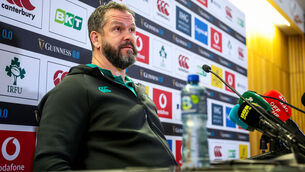Future stars lost by judging fish on ability to climb a tree...

Getting a background on the school, I was told rugby was compulsory for all in first and second year. Other sports were kept to a minimum, and realistically each boy could only commit to one sport. Hence for the majority, particularly the athletic group, this choice was invariably rugby.
My next question: How did the school do in recent and not so recent years in schools rugby competition? Terribly. Not even a contender, rarely past the first round. They had the school facilities, the access to coaching and strength and conditioning, they had training pitches and gyms, they had the reverence of the rest of the school as being on the Senior Cup Team, yet they were beaten before they took the field. The ethos and culture was to almost accept a ceiling of achievement of starting on the Senior Cup team, be a big fish in a small pond.












